Hands-on research for the Formula Student
In their Autonomous Vehicles & Artificial Intelligence course, Prof. Thorsten Berger, head of the Software Engineering chair at the Faculty of Computer Science, and Dr. Sven Peldszus teach how to properly develop and integrate software for autonomous vehicles. They were actively supported by Nicolas Kuhl (IT Security student) from the RUB Motorsport Team.
Autonomous driving is the future of individual mobility. Major manufacturers, such as Bosch and VW, are all working on fully autonomous vehicles. While robust and good solutions already exist for individual problems of autonomous driving, for example the detection of individual objects such as traffic signs, the challenge currently lies in the integration of the increasingly complex systems. Thus, the key to self-driving vehicles is the development of complex software systems.
In the Autonomous Vehicles & Artificial Intelligence course, participants learn about various aspects of autonomous vehicles and the importance and application of artificial intelligence in this context. The curriculum focuses on the requirements of autonomous vehicles, the design and implementation of software, as well as testing.
The goal is to apply the theoretical background learned and to develop a self-driving race car in the form of a robot within teams. The tasks of the robot result from a cooperation with the RUB Motorsport Team, the Formula Student Team of the RUB. Formula Student is an engineering competition in which students apply their acquired knowledge to develop a racing car. The Bochum team is currently preparing to participate in the Driverless Challenge of Formula Student. Here, the prototype of a racing car is being built that will race autonomously within the specified track boundaries. In addition to imparting theoretical knowledge, the course is designed to enable participants to apply their knowledge practically. For example, to developing the race car of the RUB Motorsport Team, which is currently preparing to compete in the prestigious Formula Student Germany in 2023.
The idea for Autonomous Vehicles & Artificial Intelligence came to Thorsten Berger as a result of his many years of research on autonomous, intelligent, and highly configurable software systems: “Applications as well as practical experience with the technologies used are important in order to further develop scientific theory. In addition, there is virtually no comparable course in the world that addresses the topic at the software system level. A conversation with RUB Motorsport then gave the starting signal for the course.”
Starting in the summer semester 2023, the lecture on Autonomous Vehicles & Artificial Intelligence will be offered every summer semester followed by the practical part in the following winter semester for Bachelor and Master students of Computer Science, Applied Computer Science and IT Security. In addition to practical teaching, the course also offers close links to other disciplines, such as mechanical engineering or electrical engineering (esp. control engineering).

